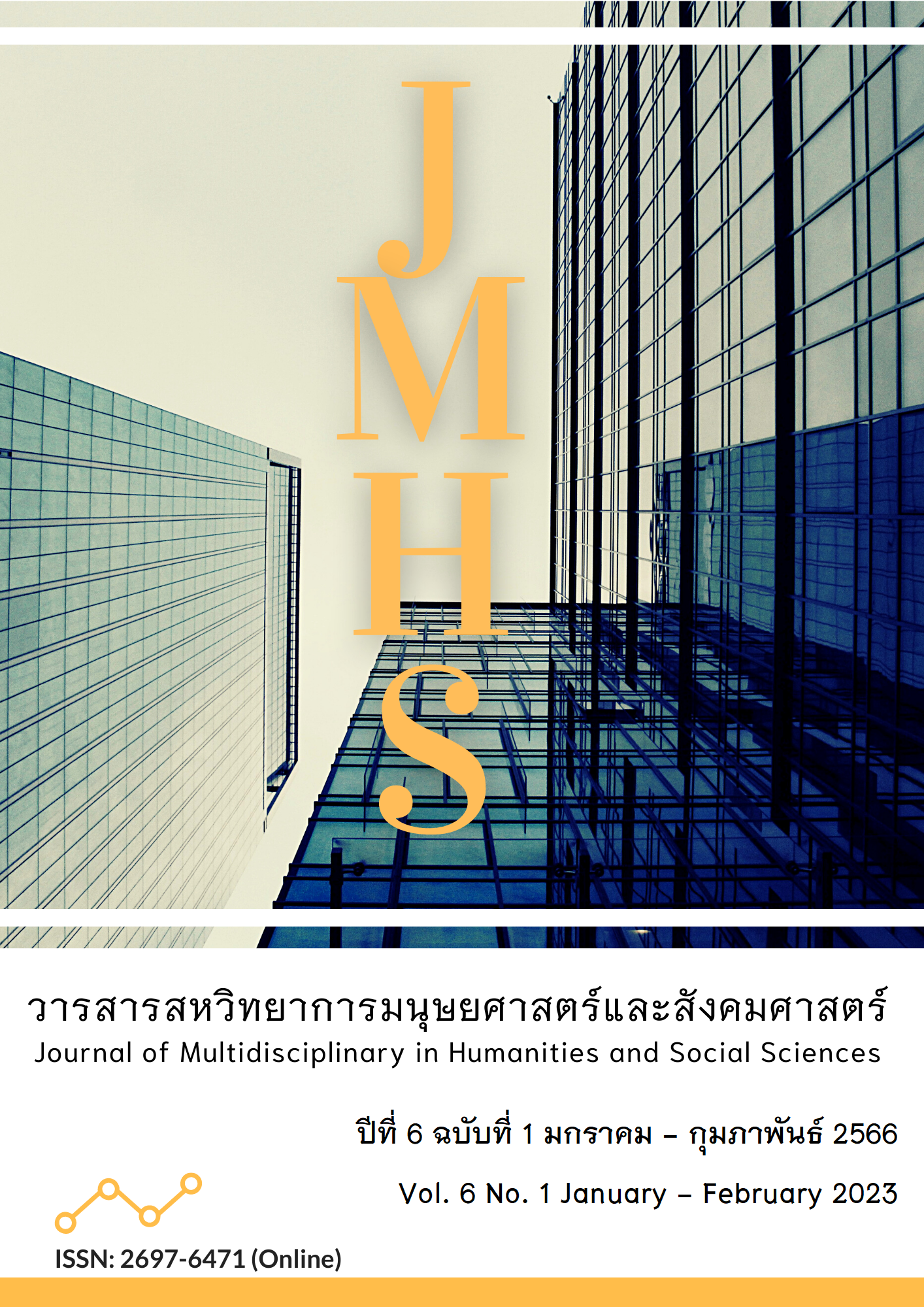The Impacts of New Media on Classroom Teaching Management of Administrators in Educational Management Taking Guangdong University of Education as an Example
Main Article Content
Abstract
This paper aimed to: 1. study the application of educational technology principles, new media theory, and university teaching theory with new media compressed for teaching. 2. compare gender education level and experience with the application of educational technology principles, new media theory, and teaching theories of the university in conjunction with new media that may be used in teaching. This is a quantitative study, and the population used is the current faculty of Guangdong University of Education, a total of 440 people. The sample size was determined by the Krejcie and Morgan tables and obtained by simple random sampling, totaling 203 people. The instruments were a questionnaire with a five-level rating scale and validation checklist. The statistics used for data analysis were percentage, mean, standard deviation (S.D.), and t-test.
The results of the study were as follows: The positive effects of new media on classroom teaching were that: (1) the acceptance of new media is high; (2) the effect of classroom teaching is improved; and (3) it is beneficial to improve one's own learning ability. The negative effects of new media on classroom teaching include: (1) the high practical rate of mobile phones in the classroom; (2) the use of new media in the classroom focuses on entertainment; (3) it directly affects academic performance; and (4) it increases thinking inertia.
Article Details

This work is licensed under a Creative Commons Attribution-NonCommercial-NoDerivatives 4.0 International License.
Views and opinions appearing in the Journal it is the responsibility of the author of the article, and does not constitute the view and responsibility of the editorial team.
References
Chen Yang. (2012). Analysis of the Influence of New Media on Youth and Countermeasures-Taking the Internet and Mobile Phones as Examples. Journal of Inner Mongolia Agricultural University (Social Science Edition).
China Internet Network Information Center. (2021). The 48th Statistical Report on Internet Development in China. China Internet Network Information Center.
Gu Zhen., Mao Pengxiang., Tang Fei., Cai Haiya., & Yang Xiang. Annie. (2012). Investigation and analysis report on the current situation of college students’ mobile Internet access. Higher education research.
He Wei. (2012). Network New Media and College Students’ Media Literacy Education. Research on Ideological and Political Education.
Huang Fuquan. (2011). Modern Curriculum and Teaching Theory. People’s Education Press.
Jones editor; Xiong Chengyu, Fan Hong translation. (2007). New Media Encyclopedia. Beijing Tsinghua University Press.
Li Xianqiong. (2007). Internet is a double-edged sword. Today’s Hubei Theory Edition.
Lin Yunlin., & Xu Fuyin. (2003). The Theory and Practice of Teaching Media. Beijing Normal University Press.
Luo Xia. (2005). Research on the Influence of Teaching Media on Classroom Teaching in Colleges and Universities. Huazhong Agricultural University.
Marshall McLuhan; Translation by He Daokuan. (2000). Theoretical Media-On the Extension of Man. Business Press.
Ni Xiechao. (2013). Research on the dual influence of new media on college students' talents and its response. Wuhan University of Technology.
Qian Wenbin. (2010). The impact of new media on college students’ value orientation and countermeasures. Journalism.
Shi Chunhong. (2013). Research on the impact of new media on college students and educational countermeasures. Xi’an University of Science and Technology.
Shi Lei. (2009). Introduction to New Media. Communication University of China Press.
Su Bin. (2012). On the Advantages of Internet New Media Communication. China Media Technology.
Wang Gaohe. (2011). The network dilemma of college students and its solutions. Research on higher education in Heilongjiang.
Wang Ling. (2012). Research on mainstream ideological identity of college students in the context of new media. Fujian Normal University.
Wang Shiyong. (2008). New media literacy education for young people from the perspective of online game addiction. Journal of Chongqing Technology and Business University (Social Science Edition).
Xiao Xuebin., & Zhu Li. (2009). The impact and response of new media on the ideological and political education of college students. Research on ideological education.
Xu Lingxiao., & Chen Guozhong. (2001). Moral Self-discipline in Network Society. Ideological Front.
Zhao Kai. (2007). Decoding New Media. Shanghai Wenhui Publishing House.
Zhu Jianhua. (2001). Analysis of the Influence of Internet Interaction on the Socialization of College Students. Journal of Hangzhou Normal University (Humanities and Social Sciences Edition).


